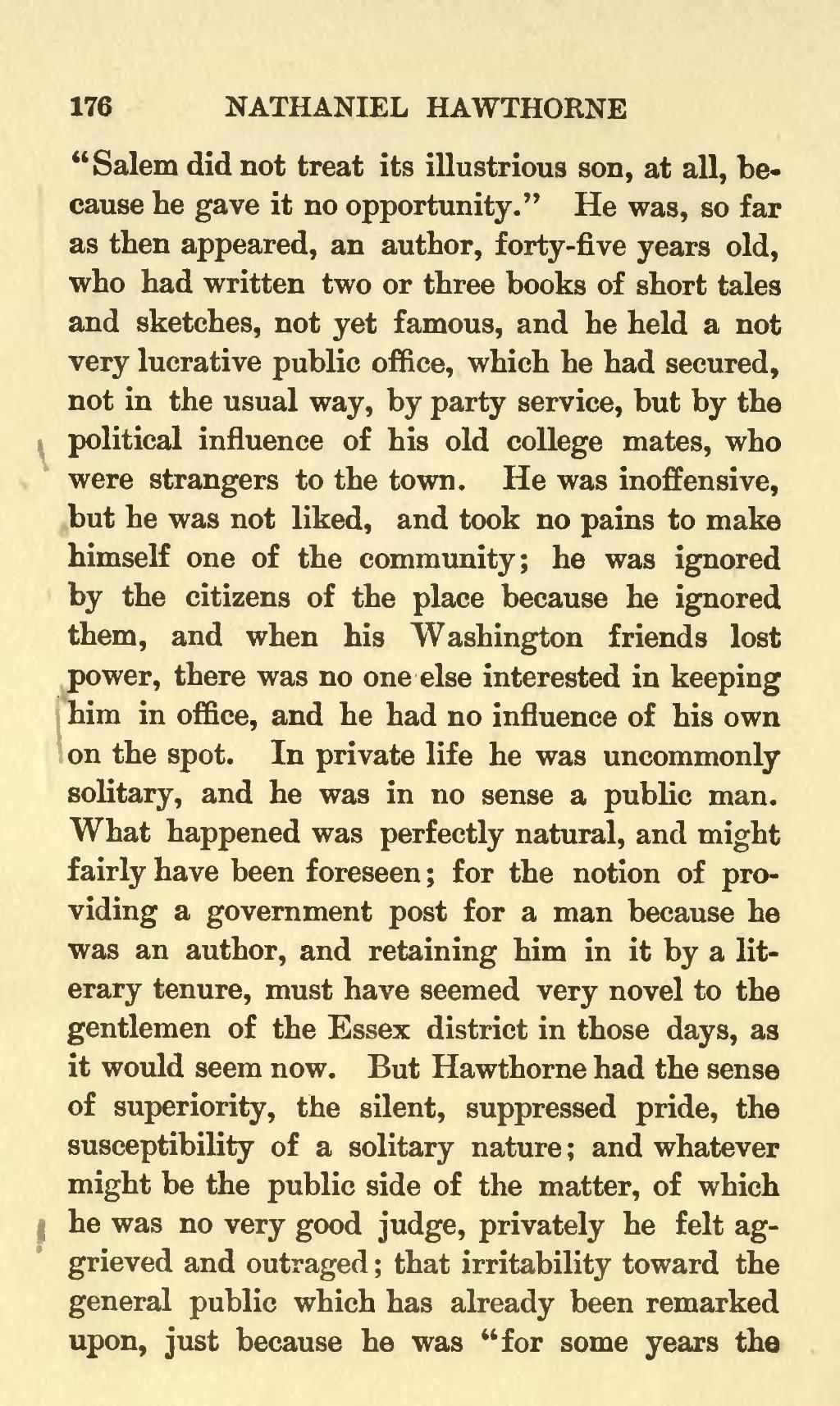Salem did not treat its illustrious son, at all, because he gave it no opportunity." He was, so far as then appeared, an author, forty-five years old, who had written two or three books of short tales and sketches, not yet famous, and he held a not very lucrative public office, which he had secured, not in the usual way, by party service, but by the political influence of his old college mates, who were strangers to the town. He was inoffensive, but he was not liked, and took no pains to make himself one of the community; he was ignored by the citizens of the place because he ignored them, and when his Washington friends lost power, there was no one else interested in keeping him in office, and he had no influence of his own on the spot. In private life he was uncommonly solitary, and he was in no sense a public man. What happened was perfectly natural, and might fairly have been foreseen; for the notion of providing a government post for a man because he was an author, and retaining him in it by a literary tenure, must have seemed very novel to the gentlemen of the Essex district in those days, as it would seem now. But Hawthorne had the sense of superiority, the silent, suppressed pride, the susceptibility of a solitary nature; and whatever might be the public side of the matter, of which he was no very good judge, privately he felt aggrieved and outraged; that irritability toward the general public which has already been remarked upon, just because he was "for some years the
Page:Nathaniel Hawthorne (Woodbury).djvu/186
This page needs to be proofread.
